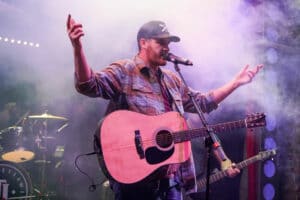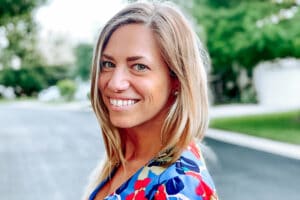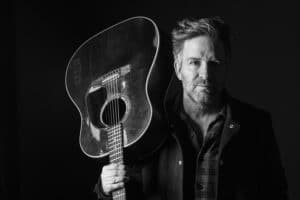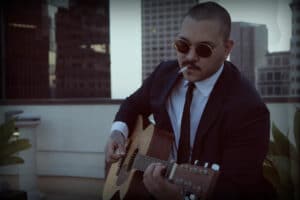Singer-songwriter Jaimee Harris: Still in love with ‘all those miracles’
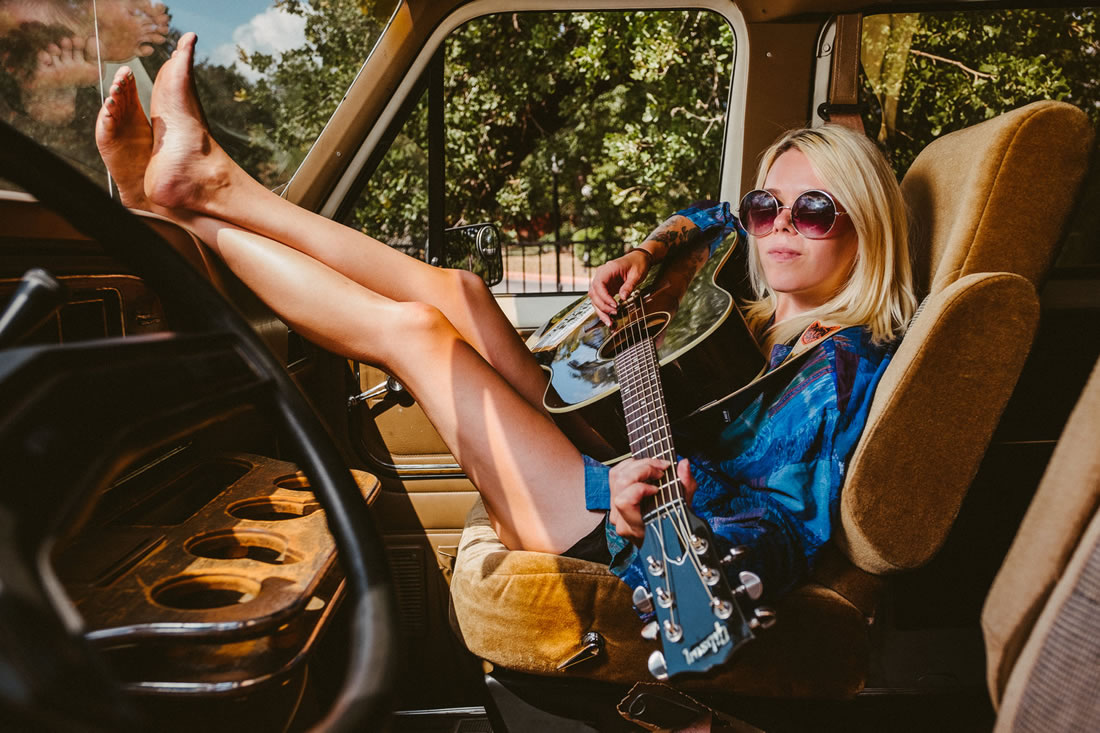
Courtesy of Brandon Aguilar
Singer-songwriter Jaimee Harris: Still in love with 'all those miracles'
Songwriters as powerful and poignant as Jaimee Harris often have a kitbag of tunes that tell their life stories.

“I gave up the cocaine, gave up the gin, freed myself of the hell I was in, asked the Lord to keep me clean again,” she croons on the track, a visceral document of the recovery that’s catapulted her not just in recovery circles, but in a crowd of peers that includes artists like Mary Gauthier.
“It’s really unreal, and it blows me away,” Harris told The Ties That Bind Us recently. “There’s not a night that I play it that I don’t have someone come up to me who identifies with it. And even if it’s not them, they’ll say, ‘That’s my partner. That’s my brother. That’s my dad.’ They know the story, and it’s allowed me to connect to a recovering community out there on the road.”
And it serves as a musical extension of Step Twelve: carrying the message to those who still suffer. Harris knows suffering, but she also knows redemption, and today the singer-songwriter is as proud of that song as anything else she sings.
“For me, the motivation for writing has always been because I was dealing with something internally, and when you’re speaking about it, the words don’t always come out correctly,” she said. “I like the format of a song. You get a certain amount of time, and I like that it gives you a little box, and you have to say what you want to get across in this short period of time. As time goes on and I continue on in my recovery, I’m able to have perspective as I’m playing those songs on stage.”
No Pegasus for Christmas
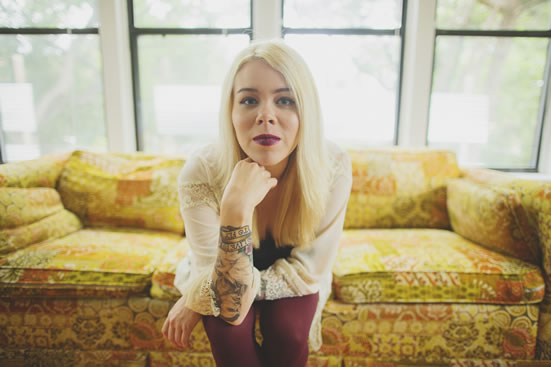
Courtesy of Betsey Lackey
Harris grew up in Hewitt, Texas, a suburb of Waco, and her discovery of music was something of a happy accident. When she was 5 years old, she said, she asked her parents for a Pegasus for Christmas — the winged horse of Greek mythology.
“I made these grand promises to all my kindergarten friends, about how we were going to have a Pegasus gang and fly around and have the greatest recess of all time,” she said with a laugh.
That holiday season, her father had purchased a copy of the Emmylou Harris Christmas album “Light of the Stable,” and young Jaimee was enamored. Her folks took notice, and when a Pegasus couldn’t be found, they settled on a guitar. That changed everything, she said.
“I got into Tracy Chapman, that first record, and then I saw the Fleetwood Mac concert film of their 1997 reunion tour,” she said. “I remember thinking, ‘I don’t care if I’m Stevie (Nicks) or Lindsey (Buckingham), that’s what I wanna do.’”
Her parents were young when their daughter was born, and her father, she added, put himself through college and law school by working at a restaurant and playing in an area cover band. As she got older, her father gave her opportunities to play songs between his band’s sets, but as he saw his daughter’s talent grow, he suggested she might be able to grow as a serious musician if she started writing her own tunes.
“I struggled at first, but I got to go to the first Austin City Limits Festival, and I got to see Emmylou and Buddy and Julie Miller and James McMurtry and Robert Earl Keen,” she said. “Growing up where I did, we didn’t have stations like NPR, so the only stuff I was exposed to at that time was commercial radio. But at that festival, I realized, ‘This is awesome,’ and I started writing songs right when I got home.”
She and her father played as a duo at first, and when she moved away for college, she found work singing background vocals for singer-songwriter David Ramirez. After six months of touring and living in Fort Collins, Colo., she returned home to Hewitt and moved back in with her parents.
“That’s when I started really drinking, because it was the only thing to do in town, it felt like, at the time,” she said.
Denial is not a river in Egypt

Courtesy of Brandon Aguilar
“I come from a long line of alcoholics, so (that possibility) was always kind of in the back of my mind,” she added. “But it was hard to admit I had a problem.”
For one, she was young; for another, she worked hard and played hard: two jobs, six days a week, 14 hours a day, followed by parties at night with her musician friends. Like a lot of alcoholics and addicts, however, the center couldn’t hold.
“Things started happening, and I couldn’t get it together,” she said. “I was sleeping through people’s weddings; losing jobs; having a harder time making my rent because I was spending all my money on drugs and alcohol. I would borrow money to make rent, and then that money that I borrowed would be gone in a night.”
She was arrested for the first time in 2013 after she was drugged in a bar; traumatized, she went through a period of refusing to eat or drink anything she couldn’t open herself. The trauma prevented her from examining her substance use, however, and when her father suggested attending meetings, she brushed him off.
“I kind of just thought, ‘I don’t have a problem; that happened to me because I got drugged,’” she said. “Then, in February 2014, before everything was settled, I got arrested again for DWI. This time, I knew.”
Her family showed her tough love, and as she made phone calls from jail, no one picked up the phone. Sitting in her cell, she came to a stark realization, she said.
“I was about to go to jail for a year, and even though a friend bailed me out before I was going to transfer, I knew that, financially, I couldn’t do it, that I couldn’t afford to be on probation,” she said. “I had already lost a couple of jobs, and that’s when another songwriter, BettySoo, asked if I would open a gig for her.”
That moment of grace became her awakening, she said: She had wanted to be a musician since childhood, and after moving back home, she had made it her goal to land in Austin, the city of her peers and heroes. Alcohol and drugs, she realized, were about to destroy those dreams.
“I realized that if I continued to do this, that I’m going to (mess) that up, and I really didn’t want to (mess) that up,” she said. “That really pushed me over the hump. I thought, ‘Maybe if I can stay sober long enough to do this gig in three months, maybe I can see how far I can go.’ Now, I’ve been sober almost five years.”
Meeting makers make it

Courtesy of Betsey Lackey
She thought about drug and alcohol treatment, but an intensive outpatient program that met for four hours a day, four days a week, would have interfered with her job, which she needed to keep in order to pay her fines. Instead, she started going to meetings, she said, and by proxy, she found a group of recovering musicians.
“It just so happened that the meetings where I went were right beside this 24-hour coffee shop/venue, so I would go to meetings, then go get coffee,” she said. “I met a lot of other sober musicians who were hanging out there, and they scooped me up and encouraged me and helped me get to the next level. That, compounded with this miraculous musical community of people who were sober, was huge. I started hanging out there more, and I would run into producers who started asking me to come do this gig or that gig. All those miracles started happening and are still happening for me.”
As her peers became more aware of that fierce soul with the ethereal voice — a cross between Sharon Van Etten and Patty Griffin, mixed with a little Knitters-era Exene Cervenka — she found a band. She began writing songs with gravity and clarity. And she found an audience that connected with her cuts-to-the-bone style of lyrical honesty.
“I got into listening rooms, where I wasn’t just playing for drink tickets,” she said. “I met guys like Jeff Plankenhorn and Jon Dee Graham, and that led to me doing some work with Jimmy LaFave. I had become a big fan of his when I was 14 — his sense of melody, his guitar playing — and a lot of that is really embedded in my songwriting. He would often call me up to sit in with him at gigs, and everywhere he went, he made sure people were aware of me.”
After LaFave died of cancer in 2017, Gauthier entered the picture. At a New Mexico songwriting workshop, she pulled Harris aside and asked, “What did Jimmy do for you?,” Harris said.
“I told her that he made sure people were aware and connected with me, and Mary said, ‘I don’t know if I’m the right person to help you, but I would be happy to continue that on since you don’t have him around anymore,’” Harris said.
True to her word, Gauthier touts Harris’ praises. Although she’s now in Nashville, she maintains close ties to her sober community in Austin, and getting on stage with the monthly showcase Sober Jam, sponsored by MusiCares and held in that city, is an event that’s near and dear to her heart.
“What they do is, they have a jam that starts with a band, and the band is different every time, all made up of people in recovery,” she said. “They bring in people through treatment centers, and people just show up. They’ll do an open mic, then they’ll do a speaker or performer in the middle, then do another set of open mic sessions. Since I began performing so young, I actually started out playing solo, so it never really occurred to me that some other musicians had never had the opportunity to play sober. I think what Sober Jam is doing is so important and beautiful.”
Check Out These Other Artists' Stories



